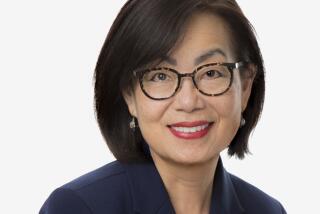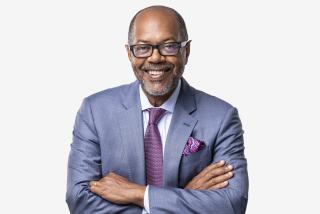Gorbachev Ally Picked as New Pravda Editor : Soviet Union: The change at the party paper gives political support to liberals and underlines commitment to reform.
- Share via
MOSCOW — The conservative chief editor of the Soviet Communist Party newspaper Pravda was replaced Thursday by a liberal political scientist and close adviser of President Mikhail S. Gorbachev as political infighting intensified within the Soviet leadership.
The Communist Party’s ruling Politburo dispatched Viktor G. Afanasyev, 66, editor of Pravda for the last 13 years, to work on research “at his request.” His replacement is Ivan T. Frolov, 60, who has advised Gorbachev on ideological questions and political reforms.
With radicals increasingly expressing fears that Gorbachev is about to slow or even reverse his reforms, the change in the editors is both a signal of his commitment to continued reforms and an important move to give them stronger political support.
In another dramatic development Thursday, the radical populist Boris N. Yeltsin was branded a liar by the Soviet Union’s interior minister and accused of trying to boost his political standing by claiming that the government is persecuting him.
Rebutting Yeltsin’s charges that Gorbachev is trying to drive him from politics by discrediting him and thus clearing the way for an about-face return to conservatism, Interior Minister Vadim V. Bakatin asserted that Yeltsin fabricated reports of an assassination attempt in a report to police in order to gain popular sympathy.
When an investigation quickly proved that Yeltsin was neither abducted nor the victim of a murder attempt, Bakatin said, he lied again to the Supreme Soviet, the country’s Parliament, and in a formal statement denying he ever made such a report to police.
“Comrade Yeltsin gave false statements in order to spread rumors advantageous to himself,” Bakatin told a news conference. He continued:
“Why advantageous? Because Comrade Yeltsin is a politician who builds his popularity not on his own constructive programs--he does not have any--but on criticizing the government, on the notion that he is victim of the authorities and on exploiting slogans popular with the people. . . .
“Yeltsin lied, and not once but two or three times, and it is important that people know that he lied.”
The controversy surrounding Yeltsin, who received 89% of the votes in last spring’s election to represent Moscow in the Congress of People’s Deputies, had compounded fears of an impending swing to the right.
Gorbachev harshly criticized liberal newspapers last Friday at a meeting of senior newspaper and magazine editors, according to Soviet journalists, and he had called for the resignation of the editor of the popular weekly newspaper Arguments and Facts because of its boldness in questioning his policies.
In an angry, sometimes petulant two-hour speech, Gorbachev had accused the Soviet press of undermining his position and making it impossible to accelerate perestroika, his policy of restructuring. He left many of those present anticipating new moves to curtail the press.
But U.S. Atty. Gen. Dick Thornburgh raised the question of press freedom during his talks this week with senior Soviet officials. Thornburgh said he received the assurance, before his departure Thursday, that the expected crackdown on the country’s most liberal newspapers and magazines would not mean an end to glasnost, the policy of political openness that underpins all of Gorbachev’s political reforms.
Vladislav A. Starkov, the editor of Arguments and Facts, which has a circulation approaching 26 million, refused again Thursday to resign, according to members of his staff, and there is now a standoff between him and the party.
Starkov has the backing of a growing number of deputies in the Supreme Soviet, and that development promises to turn the scheduled debate next week over the proposed press law into a major political confrontation.
Afanasyev, although a supporter of perestroika, became a leading conservative within the party’s top ranks. He made Pravda--the party’s voice even as it lost perhaps half its circulation over the last year--a strong advocate of the most cautious approach to those changes.
His replacement by Frolov apparently came after a major debate within the Politburo and a further struggle over the course of perestroika. Frolov is a former editor of the party’s theoretical journal Kommunist; before that, he edited the country’s leading philosophical journal.
More to Read
Sign up for Essential California
The most important California stories and recommendations in your inbox every morning.
You may occasionally receive promotional content from the Los Angeles Times.












